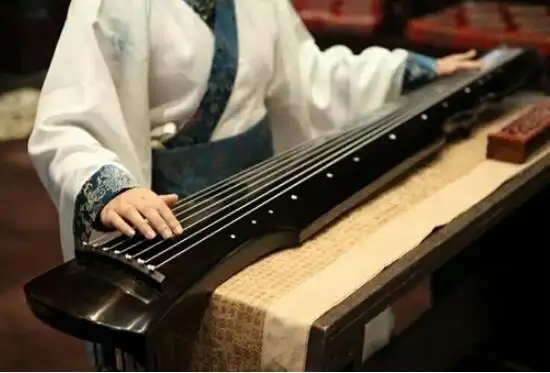Xiaoxiang Water and Clouds: A Deep Analysis of Humanistic Connotation and Natural Feelings in Guqin Music
"Xiaoxiang Shuiyun" is a famous ancient Chinese guqin song that has been passed down for a long time and has a profound artistic conception. Its creation originated from the Southern Song Dynasty and was composed by the guqin master Guo Mian. This qin piece not only has extremely high artistic value, but also serves as a model of the integration of humanistic spirit and natural emotions in traditional Chinese music culture.

The "Xiaoxiang Water Cloud" is based on the beautiful scenery of the Xiaoxiang Second River and Dongting Lake in Hunan Province. It uses the changes in water clouds to describe the changes in the world, expresses the author's deep concern for the turbulent situation, the rise and fall of the country, and the longing for a peaceful and harmonious life. The melody of the music is beautiful and smooth, with ups and downs. Through delicate and layered playing techniques, it vividly displays the scene of clouds and water intertwined, magnificent waves, as well as the profound and far-reaching emotional world that is sad yet not hurt.
The entire piece is divided into four parts: "beginning, ending, and ending." It cleverly uses various rhythmic forms such as tempo, slow tempo, and fast tempo to simulate various natural scenes such as water vapor transpiration, clouds rolling and flowing, and turbulent river currents. At the same time, it also contains the author's inner feelings and thoughts about the desolation of the world and life experiences. Among them, "water" symbolizes the constant flow of all things in the world, while "cloud" symbolizes the impermanence and changes in the human world. The combination of the two forms a philosophical music painting.
As one of the treasures of Chinese guqin music, "Xiaoxiang Shuiyun" not only achieved extremely high attainments in music art, but also conveyed the ancient people's reverence for nature, profound insight into society and life, and unremitting pursuit of ideal realm at a deep level. It fully embodies the noble sentiment and humanistic care of the ancient Chinese literati and officialdom.
 渝公网安备 50010702504639号
渝公网安备 50010702504639号